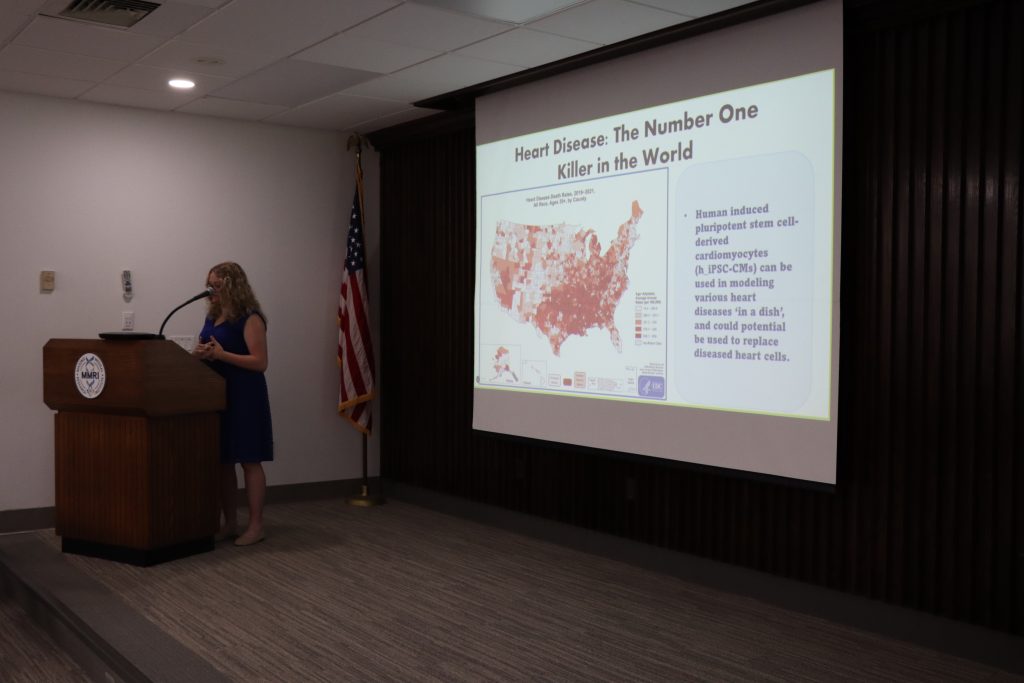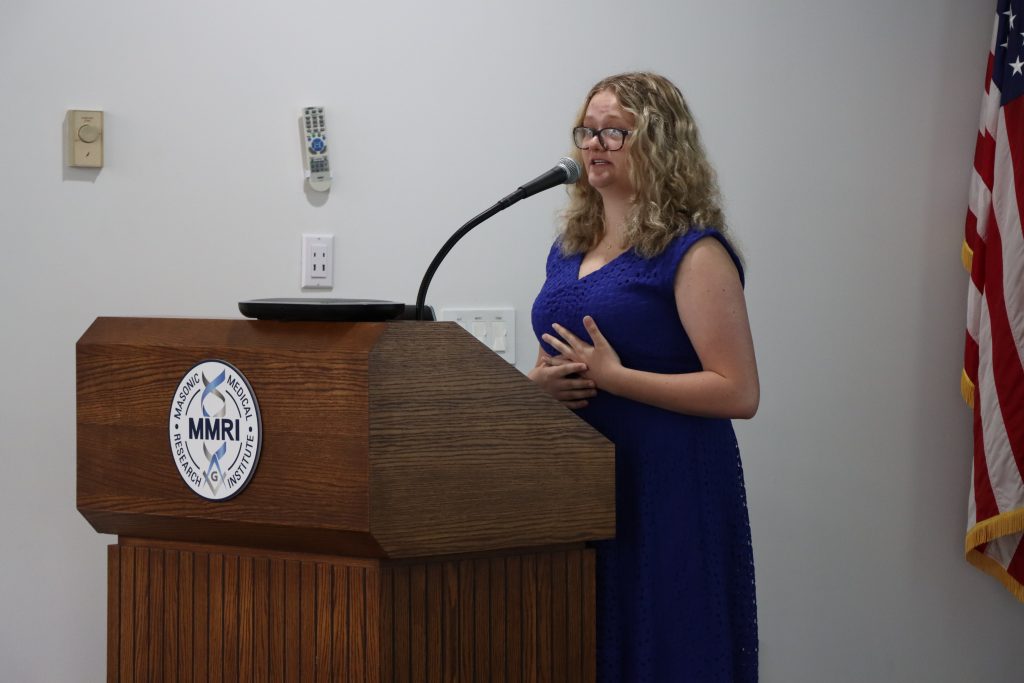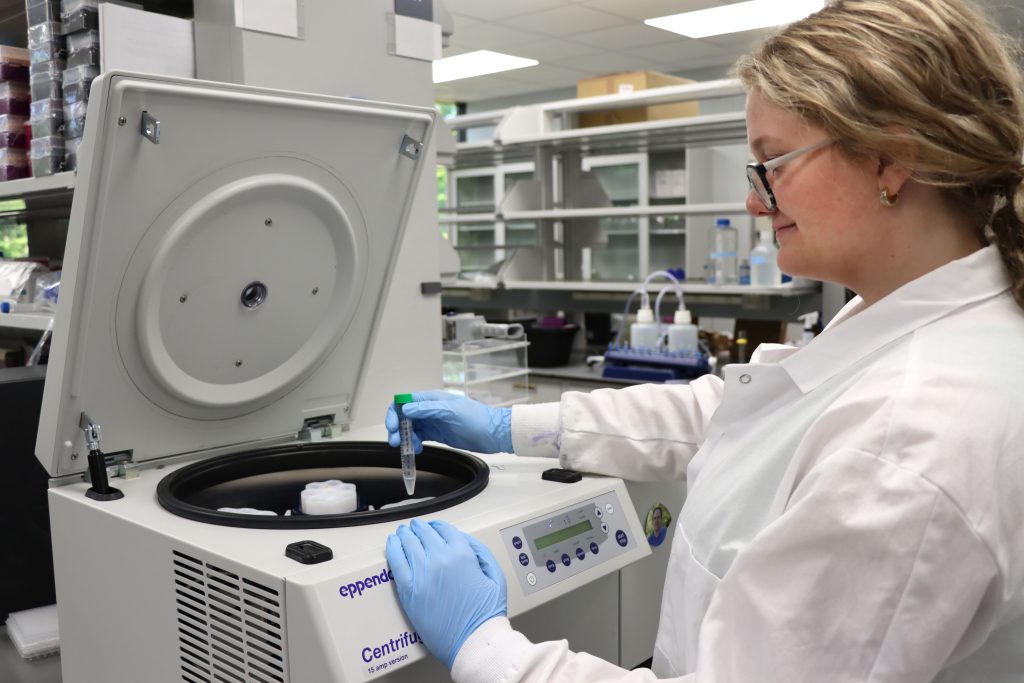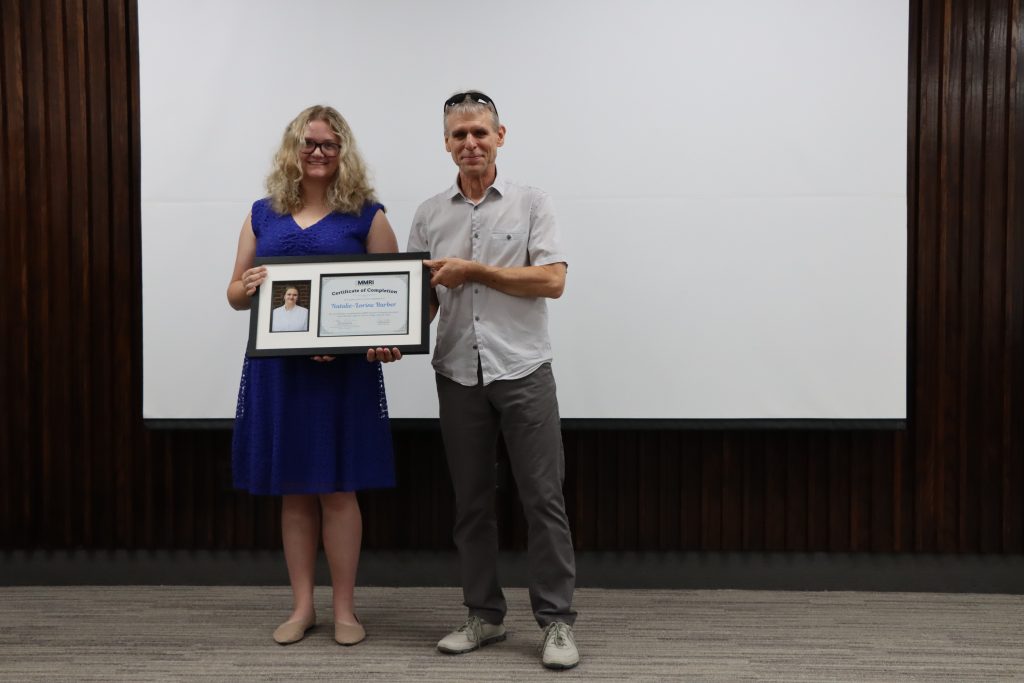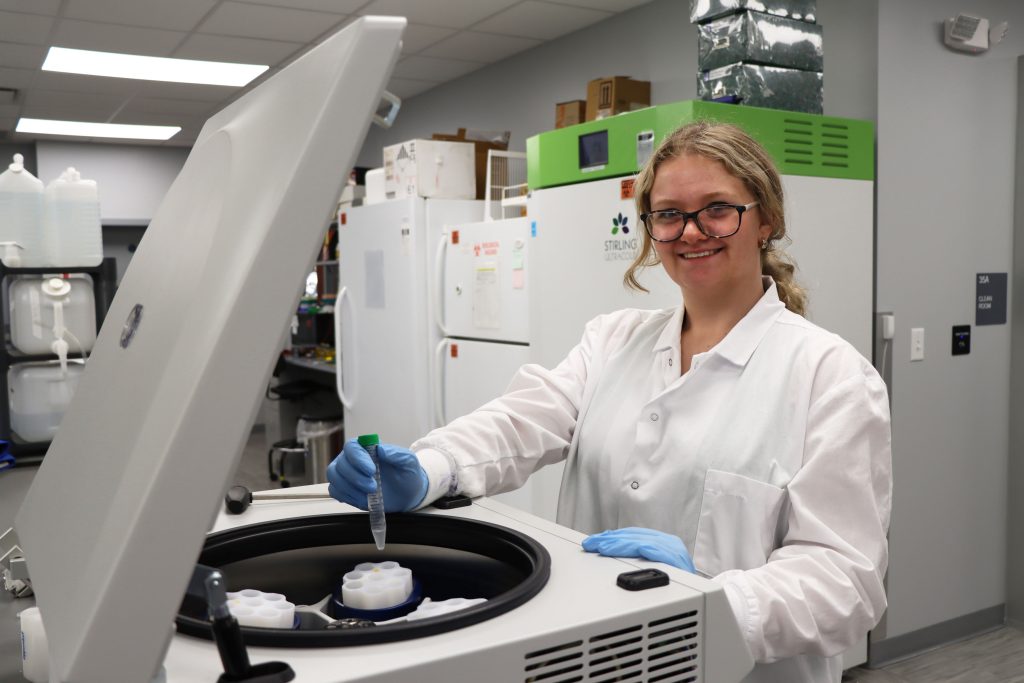
Natalie Barber recently completed her Summer Fellowship at Masonic Medical Research Institute in Utica, NY. The Summer Fellowship Program at MMRI provides a scientific research experience for undergraduate, graduate and medical students.
- What inspired you to pursue this internship with MMRI, and how did it align with your academic or career goals?
From early on, I understood how important research is in medicine. I wanted to see how scientific discoveries lead to new treatments and make a difference in patient care. To start building this foundation, I took BIO 497, an independent research course, during the spring semester. This was my first hands-on experience in a lab, and it introduced me to the world of stem cell and electrophysiology research. What stood out to me right away was the real potential these projects had to impact lives. That sense of possibility inspired me to apply for a summer research fellowship, which allowed me to explore these interests even further - Can you describe your internship and the research you worked on? Who were you researching with?
Over the summer, I joined the Kontaridis Lab under the guidance of Dr. Aistrup. I worked on a project involving human induced pluripotent stem cells (hiPSCs) and cardiomyocytes, the heart muscle cells that can be produced from hiPSCs. Our main challenge was to find ways to increase the number of cardiomyocytes, since these cells stop dividing once they’re fully developed. This makes it challenging to obtain enough cells for research or therapy. We experimented with different culture conditions to encourage greater cell expansion, intending to make the process more efficient. If successful, this could help the lab use its time and resources better and eventually bring stem cell treatments for heart disease closer to practice. - What were some of the most valuable skills or lessons you learned throughout the internship?
During my fellowship, I gained both practical and broader skills that will be useful in the future. I became comfortable with key lab techniques, including pipetting, working aseptically, running cell cultures, and taking care of both hiPSCs and cardiomyocytes. I learned to use essential lab equipment, document experiments thoroughly, and adjust protocols when things didn’t go as planned. The biggest lesson for me was developing a scientific mindset: always asking questions, analyzing results critically, and becoming comfortable with uncertainty. Learning to adapt and stay persistent was the most valuable takeaway. - Was there a specific project or moment during your internship that stood out to you? Why was it meaningful?
One of the most challenging aspects was figuring out how to communicate our work to people from diverse backgrounds, including scientists, policymakers, and donors. I practiced explaining complex ideas in simpler terms and focused on why our research matters in ways everyone could grasp. Using analogies and seeking honest feedback made a difference, and I realized that clear communication is often just as important as conducting the research itself. - How did this experience challenge you, and how did you grow as a result?
What I valued most about the fellowship was meeting and working with people at all stages of their scientific journeys, from undergraduates to postdocs from various countries. Collaborating with peers brought energy to my work, and advice from more experienced scientists broadened my outlook on academia and different cultures inside and outside the lab. Being surrounded by passionate, motivated individuals strengthened my commitment to being part of this scientific community. - In what ways has this internship influenced your future plans or perspective on your field of study?This experience solidified my motivation to find a career that combines medicine and research. I saw firsthand that science is rarely a straight path; progress takes patience, creative problem solving, and openness to learning as new challenges appear. These are the qualities I want to bring to my future role as a physician. Whether I’m in the lab or with patients, my goal remains the same: to improve lives through curiosity, evidence-based thinking, and a drive for innovation. This summer deepened my appreciation for the essential role research plays in advancing patient care.
- What advice would you give to other students considering an internship in your field?
For anyone starting research, stay curious, stay patient, and ask questions whenever you can. Everything might feel overwhelming at first, but you are not expected to have all the answers. Treat setbacks as opportunities to learn and celebrate small victories. Immerse yourself fully in the experience and remain open to where it can take you. Research will sharpen your critical thinking, teamwork, and resilience—all skills that are valuable in any field. Enjoy the process, because it goes by faster than you might think.
